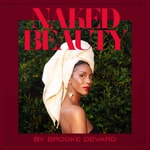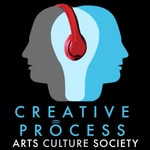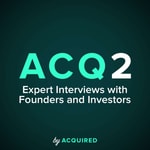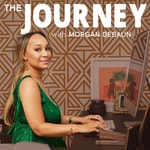One Planet Podcast · Climate Change, Politics, Sustainability, Environmental Solutions, Renewable Energy, Activism, Biodiversity, Carbon Footprint, Wildlife, Regenerative Agriculture, Circular Economy, Extinction, Net-Zero – Details, episodes & analysis
Podcast details
Technical and general information from the podcast's RSS feed.
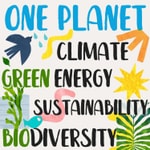
One Planet Podcast · Climate Change, Politics, Sustainability, Environmental Solutions, Renewable Energy, Activism, Biodiversity, Carbon Footprint, Wildlife, Regenerative Agriculture, Circular Economy, Extinction, Net-Zero
Creative Process Original Series
Frequency: 1 episode/3d. Total Eps: 300

The story of our environment may well be the most important story this century. We focus on issues facing people and the planet. Leading environmentalists, organizations, activists, and conservationists discuss meaningful ways to create a better and more sustainable future.
Participants include EARTHDAY.ORG, U.S. Environmental Protection Agency, Environmental Defense Fund, Greenpeace, UNESCO World Heritage Centre, PETA, European Environment Agency, Peter Singer, 350.org, The Nature Conservancy, UNESCO Mahatma Gandhi Institute of Education for Peace and Sustainable Development, Citizens’ Climate Lobby, Rob Nixon, Rob Gonen, Martín von Hildebrand, FSG Reimagining Social Change, Earth System Governance Project, Forest Stewardship Council, Global Witness, National Council for Climate Change, Sustainable Development and Public Leadership, Marine Stewardship Council, One Tree Planted, Polar Bears International, EarthLife Africa, Shimon Schwarzschild, and GAIA Centre, among others.
Interviews conducted by artist, activist, and educator Mia Funk with the participation of students and universities around the world. the net Podcast Is part of The Creative Process’ environmental initiative.
Copyright 2021
Recent rankings
Latest chart positions across Apple Podcasts and Spotify rankings.
Apple Podcasts
🇩🇪 Germany - nature
28/07/2025#76🇩🇪 Germany - nature
27/07/2025#58🇩🇪 Germany - nature
26/07/2025#51🇩🇪 Germany - nature
25/07/2025#48🇩🇪 Germany - nature
24/07/2025#35🇬🇧 Great Britain - nature
02/06/2025#81🇬🇧 Great Britain - nature
01/06/2025#60🇬🇧 Great Britain - nature
31/05/2025#39🇬🇧 Great Britain - nature
30/05/2025#93🇬🇧 Great Britain - nature
29/05/2025#73
Spotify
No recent rankings available
Shared links between episodes and podcasts
Links found in episode descriptions and other podcasts that share them.
See all- http://www.creativeprocess.info
4801 shares
- http://www.oneplanetpodcast.org
4152 shares
- https://studiorichtermahr.com
247 shares
- https://twitter.com/palumboliu?s=20
270 shares
- https://twitter.com/mroth78
44 shares
- https://twitter.com/docsforclimate
32 shares
RSS feed quality and score
Technical evaluation of the podcast's RSS feed quality and structure.
See allScore global : 58%
Publication history
Monthly episode publishing history over the past years.
Wetlands, Methane & Restoring Earth’s Garden of Eden with EUAN NISBET
Season 8
vendredi 30 août 2024 • Duration 45:47
Have we entered what Earth scientists call a “termination event,” and what can we do to avoid the worst outcomes? How can a spiritual connection to nature guide us toward better environmental stewardship? What can ancient wisdom teach us about living harmoniously with the Earth? How have wetlands become both crucial carbon sinks and colossal methane emitters in a warming world?
Euan Nisbet is an Emeritus Professor of Earth Sciences at the Royal Holloway University of London. Specializing in methane and its impact on climate change, his research spans Arctic and Tropical Atmospheric Methane budgets. Nisbet led the MOYA project, focusing on global methane emissions using aircraft and ground-based field campaigns in Africa and South America. Born in Germany and raised in Africa, his field work has taken him around the world. He is the author of The Young Earth and Leaving Eden: To Protect and Manage the Earth.
“I am a Christian and I have strong Muslim and Jewish friends as well as great respect for Hindu beliefs. I grew up in Southern Africa and I am well aware of the depth of some Indigenous beliefs. I think that having belief systems does give you a very different perspective sometimes. Now, in Christianity, the concept of the shepherd, human beings are here and this is our garden, our garden of Eden, but we have a responsibility. And if we choose to kick ourselves out of the garden, there are consequences. And that's precisely what we are doing. The garden is there, it's lovely, and we can manage it, and it's our job to manage it. We can manage it properly. We can respect it. It's for all creation, and it's very explicit that it involves all Creation. And that's a very fundamental biblical law that you have to respect all Creation. And if you don't do that, then the consequences—you’re basically throwing yourself out of the Garden of Eden."
https://pure.royalholloway.ac.uk/en/persons/euan-nisbet
www.creativeprocess.info
www.oneplanetpodcast.org
IG www.instagram.com/creativeprocesspodcast
How can journalism make people care about environmental crises & create solutions? - Highlights - NICHOLAS KRISTOF
Season 8
lundi 26 août 2024 • Duration 16:39
"I'm trying to get people to care about a crisis in ways that may bring solutions to it. And that's also how I deal with the terror and the fear to find a sense of purpose in what I do. It's incredibly heartbreaking to see some of the things and hear some of the stories, but at the end of the day, it feels like–inconsistently here and there–you can shine a light on problems, and by shining that light, you actually make a difference.
The fundamental impediment is that 10 years ago, it just seemed really hard to see how we were going to get out of climate change and disastrous consequences, but right now, if you squint a little bit, you can maybe see a path through this period where we reduce carbon emissions enough to figure out how to navigate our way to a future in which things work and we pay a price, but one that is manageable. Green energy is becoming much cheaper because of a revolution in battery technology, and now there are possibilities for a field-like energy generated by waves or fusion nuclear power to remove carbon from the air with direct air capture. We're not sure that these will work, but they may, and they would really be revolutionary. China is an interesting example of a country that has made remarkable progress on electrification and battery technology. It is still pushing out a ton of carbon, but it has done this for practical reasons—it understands that those are key technologies for the future and whoever figures out how to get electric vehicles done right, whoever figures out how to get battery technology right, the world is going to benefit from their progress in battery technology, just as the world has benefited by having solar panels made in China go up all over the world.”
Nicholas D. Kristof is a two-time Pulitzer-winning journalist and Op-ed columnist for The New York Times, where he was previously bureau chief in Hong Kong, Beijing, and Tokyo. Kristof is a regular CNN contributor and has covered, among many other events and crises, the Tiananmen Square protests, the Darfur genocide, the Yemeni civil war, and the U.S. opioid crisis. He is the author of the memoir Chasing Hope, A Reporter's Life, and coauthor, with his wife, Sheryl WuDunn, of five previous books: Tightrope, A Path Appears, Half the Sky, Thunder from the East, and China Wakes.
Family vineyard & apple orchard in Yamhill, Oregon: www.kristoffarms.com
www.creativeprocess.info
www.oneplanetpodcast.org
IG www.instagram.com/creativeprocesspodcast
Utopia in the Age of Survival with S. D. CHROSTOWSKA
Season 8
jeudi 25 juillet 2024 • Duration 44:50
As Surrealism turns 100, what can it teach us about the importance of dreaming and creating a better society? Will we wake up from the consumerist dream sold to us by capitalism and how would that change our ideas of utopia?
S. D. Chrostowska is professor of humanities at York University, Canada. She is the author of several books, among them Permission, The Eyelid, A Cage for Every Child, and, most recently, Utopia in the Age of Survival: Between Myth and Politics. Her essays have appeared in such venues as Public Culture, Telos, Boundary 2, and The Hedgehog Review. She also coedits the French surrealist review Alcheringa and is curator of the 19th International Exhibition of Surrealism, Marvellous Utopia, which runs from July to September 2024 in Saint-Cirq-Lapopie, France.
"People speak about the Anthropocene. I don't quite like this term, but the idea that humans have been transforming nature and have been altering it, adulterating it, something to put into perspective regarding this nostalgia for pristine nature. And utopianism actually goes hand in hand with nostalgia. I mentioned the myth of the Golden Age. This was something that used to exist, the Golden Age or paradise, an idea of pure nature in harmony with human beings. These nostalgic imaginaries that feed into and can reactivate utopian thinking in our day. We should by no means let go of an idea of pristine nature. And I also don't think, just to return to this idea of species extinction. I don't think that the de-extinction efforts are particularly utopian, even though they may seem this way. How do we compensate for the material loss of biodiversity? I think no amount of technological ingenuity will actually fulfill this desire for a return to the pristine nature that we have lost.”
https://profiles.laps.yorku.ca/profiles/sylwiac/
www.sup.org/books/title/?id=33445
https://chbooks.com/Books/T/The-Eyelid
https://ciscm.fr/en/merveilleuse-utopie
www.creativeprocess.info
www.oneplanetpodcast.org
IG www.instagram.com/creativeprocesspodcast
Highlights - BRIAN DAVID JOHNSON - Director of the ASU Threatcasting Lab - Author of The Future You
Season 6
samedi 4 novembre 2023 • Duration 11:00
"I think the most important thing that I would like young people to know is that they can build their future. That they have the power and they have the agency to shape their future and they have the ability and the power when working with others to have an even broader impact.
The thing that scares me the most about the future is when people give up that agency and they let other people design their futures for them. For me, I think it's incredibly powerful to go to young people and say you can do it. But also you need to tell me what you want. And I think empowering them to have a vision for the future, that's why I spend so much time in schools and talking to young people because it's those visions that I think are incredibly important."
Brian David Johnson is Futurist in Residence at Arizona State University’s Center for Science and the Imagination, a professor in the School for the Future of Innovation in Society, and the Director of the ASU Threatcasting Lab. He is Author of The Future You: How to Create the Life You Always Wanted, Science Fiction Prototyping: Designing the Future with Science Fiction, 21st Century Robot: The Dr. Simon Egerton Stories, Humanity in the Machine: What Comes After Greed?, Screen Future: The Future of Entertainment, Computing, and the Devices We Love.
https://csi.asu.edu/people/brian-david-johnson/
www.creativeprocess.info
www.oneplanetpodcast.org
IG www.instagram.com/creativeprocesspodcast
BRIAN DAVID JOHNSON - Author of The Future You: How to Create the Life You Always Wanted - Futurist in Residence, ASU’s Center for Science & the Imagination
Season 6
vendredi 3 novembre 2023 • Duration 47:15
Brian David Johnson is Futurist in Residence at Arizona State University’s Center for Science and the Imagination, a professor in the School for the Future of Innovation in Society, and the Director of the ASU Threatcasting Lab. He is Author of The Future You: How to Create the Life You Always Wanted, Science Fiction Prototyping: Designing the Future with Science Fiction, 21st Century Robot: The Dr. Simon Egerton Stories, Humanity in the Machine: What Comes After Greed?, Screen Future: The Future of Entertainment, Computing, and the Devices We Love.
"I think the most important thing that I would like young people to know is that they can build their future. That they have the power and they have the agency to shape their future and they have the ability and the power when working with others to have an even broader impact.
The thing that scares me the most about the future is when people give up that agency and they let other people design their futures for them. For me, I think it's incredibly powerful to go to young people and say you can do it. But also you need to tell me what you want. And I think empowering them to have a vision for the future, that's why I spend so much time in schools and talking to young people because it's those visions that I think are incredibly important."
https://csi.asu.edu/people/brian-david-johnson/
www.creativeprocess.info
www.oneplanetpodcast.org
IG www.instagram.com/creativeprocesspodcast
Highlights - SUSAN SCHNEIDER - Author of Artificial You: AI and the Future of Your Mind, Fmr. Distinguished Scholar, US Library of Congress
Season 6
mardi 31 octobre 2023 • Duration 13:08
"I'm using ChatGPT Plus, and you can do much better research. I think the scientific possibilities are amazing, and it's a very good research assistant. There are plugins you can use to go through scientific papers quickly. And if you feed it the right sort of data, it has near instantaneous access to a range of facts that helps me in my field. And I think any system that has these kinds of capacities...it's a sort of crowdsourced brain if you will. So it's roughly like the neocortex, very roughly. And it's a neocortex without a limbic system. So it's just an association engine without necessarily emotions, but it's able to quickly access a range of materials that humans can't. So there should be intriguing scientific discoveries, drug discovery, and computations. And of course, involving climate change."
Will AI become conscious? President Biden has just unveiled a new executive order on AI — the U.S. government’s first action of its kind — requiring new safety assessments, equity and civil rights guidance, and research on AI’s impact on the labor market. With this governance in place, can tech companies be counted on to do the right thing for humanity?
Susan Schneider is a philosopher, artificial intelligence expert, and founding director of the Center for the Future Mind at Florida Atlantic University. She is author of Artificial You: AI and the Future of Your Mind, Science Fiction and Philosophy: From Time Travel to Superintelligence, and The Blackwell Companion to Consciousness. She held the NASA Chair with NASA and the Distinguished Scholar Chair at the Library of Congress. She is now working on projects related to advancements in AI policy and technology, drawing from neuroscience research and philosophical developments and writing a new book on the shape of intelligent systems.
www.fau.edu/artsandletters/philosophy/susan-schneider/index
www.fau.edu/future-mind/
www.creativeprocess.info
www.oneplanetpodcast.org
IG www.instagram.com/creativeprocesspodcast
SUSAN SCHNEIDER - Director, Center for the Future Mind, FAU, Fmr. NASA Chair at NASA
Season 6
mardi 31 octobre 2023 • Duration 34:27
Will AI become conscious? President Biden has just unveiled a new executive order on AI — the U.S. government’s first action of its kind — requiring new safety assessments, equity and civil rights guidance, and research on AI’s impact on the labor market. With this governance in place, can tech companies be counted on to do the right thing for humanity?
Susan Schneider is a philosopher, artificial intelligence expert, and founding director of the Center for the Future Mind at Florida Atlantic University. She is author of Artificial You: AI and the Future of Your Mind, Science Fiction and Philosophy: From Time Travel to Superintelligence, and The Blackwell Companion to Consciousness. She held the NASA Chair with NASA and the Distinguished Scholar Chair at the Library of Congress. She is now working on projects related to advancements in AI policy and technology, drawing from neuroscience research and philosophical developments and writing a new book on the shape of intelligent systems.
"I'm using ChatGPT Plus, and you can do much better research. I think the scientific possibilities are amazing, and it's a very good research assistant. There are plugins you can use to go through scientific papers quickly. And if you feed it the right sort of data, it has near instantaneous access to a range of facts that helps me in my field. And I think any system that has these kinds of capacities...it's a sort of crowdsourced brain if you will. So it's roughly like the neocortex, very roughly. And it's a neocortex without a limbic system. So it's just an association engine without necessarily emotions, but it's able to quickly access a range of materials that humans can't. So there should be intriguing scientific discoveries, drug discovery, and computations. And of course, involving climate change."
www.fau.edu/artsandletters/philosophy/susan-schneider/index
www.fau.edu/future-mind/
www.creativeprocess.info
www.oneplanetpodcast.org
IG www.instagram.com/creativeprocesspodcast
Highlights - DAVID BYRNE'S THEATER OF THE MIND - Stories of Impact - Nicholas Bruckman, John Tracey, Ian Moubayed
Season 6
mercredi 25 octobre 2023 • Duration 13:28
"People don't change their minds when they hear facts. You're not going to shame someone into action. That's just not that's not going to happen. Stories, and importantly, who is telling that story are so essential. In terms of engaging with science and having a relationship with science, it's critical."
" Speaking about theater and climate change, we produced that piece this year. We followed a young theater performer who, along with other young people, put on a play about climate change informed by real scientists, and real marine biologists, including discussion of reefs and other challenges that oceans are facing due to climate change.
And I think what's really exciting about that piece and that approach, for me personally, is that we don't necessarily expect that the play will move the needle on climate change. But I think it was very clear from following this young protagonist who embarked on this act of storytelling and performance herself, that she felt a great deal of catharsis and also empowerment by creating this artistic piece and sharing it with other young people. And that this artistic expression set her on a lifelong journey to deal with this issue, which she knows - she's 17 - sits uniquely on her generation's shoulders. And so I do think there's an important synthesis between science, the arts, and the actual tackling of the formidable challenge that we face."
Nicholas Bruckman is founder and CEO of People's Television, a production studio and creative agency that produces independent films, and video storytelling for brands. Collaborating with the The Simons Foundation through their 'Science Sandbox' Initiative, he directed Theater of the Mind, which takes audiences into the creative inner workings of Musician and Artist David Byrne’s brain, showcasing Byrne’s immersive theater performance, which attempts to conceptualize the idea of our sense of self and how malleable the mind truly is.
He directed the award-winning healthcare justice documentary Not Going Quietly, executive produced by Mark and Jay Duplass.
John Tracey is Program Director of Science, Society and Culture projects at the Simons Foundation whose mission is to advance the frontiers of research in mathematics and the basic sciences to unravel the mysteries of the universe. The foundation champions basic science through grant funding, support for research and public engagement.
Ian Moubayed started his career as a cinematographer, collaborating with Emmy, Peabody, and Oscar-winning filmmakers. His work includes Netflix’s The Great Hack, NBC Peacock’s The Sit-In: Harry Belafonte Hosts the Tonight Show, and HBO’s The Vow.
www.youtube.com/@sciencesandbox
www.davidbyrne.com
https://nickny.com/bio
https://www.simonsfoundation.org/people/john-tracey/
https://peoples.tv/director/ian-moubayed/
www.creativeprocess.info
www.oneplanetpodcast.org
IG www.instagram.com/creativeprocesspodcast
DAVID BYRNE'S THEATER OF THE MIND - Stories of Impact produced by Simons Foundation & People’s TV
Season 6
mercredi 25 octobre 2023 • Duration 46:07
What is consciousness? The mind produces thoughts, sensations, perception, emotions. How can these inner felt experiences be produced within the darkness of the human skull?
Nicholas Bruckman is founder and CEO of People's Television, a production studio and creative agency that produces independent films, and video storytelling for brands. Collaborating with the The Simons Foundation through their 'Science Sandbox' Initiative, he directed Theater of the Mind, which takes audiences into the creative inner workings of Musician and Artist David Byrne’s brain, showcasing Byrne’s immersive theater performance, which attempts to conceptualize the idea of our sense of self and how malleable the mind truly is.
He directed the award-winning healthcare justice documentary Not Going Quietly, executive produced by Mark and Jay Duplass.
John Tracey is Program Director of Science, Society and Culture projects at the Simons Foundation whose mission is to advance the frontiers of research in mathematics and the basic sciences to unravel the mysteries of the universe. The foundation champions basic science through grant funding, support for research and public engagement.
Ian Moubayed started his career as a cinematographer, collaborating with Emmy, Peabody, and Oscar-winning filmmakers. His work includes Netflix’s The Great Hack, NBC Peacock’s The Sit-In: Harry Belafonte Hosts the Tonight Show, and HBO’s The Vow.
"People don't change their minds when they hear facts. You're not going to shame someone into action. That's just not that's not going to happen. Stories, and importantly, who is telling that story are so essential. In terms of engaging with science and having a relationship with science, it's critical."
" Speaking about theater and climate change, we produced that piece this year. We followed a young theater performer who, along with other young people, put on a play about climate change informed by real scientists, and real marine biologists, including discussion of reefs and other challenges that oceans are facing due to climate change.
And I think what's really exciting about that piece and that approach, for me personally, is that we don't necessarily expect that the play will move the needle on climate change. But I think it was very clear from following this young protagonist who embarked on this act of storytelling and performance herself, that she felt a great deal of catharsis and also empowerment by creating this artistic piece and sharing it with other young people. And that this artistic expression set her on a lifelong journey to deal with this issue, which she knows - she's 17 - sits uniquely on her generation's shoulders. And so I do think there's an important synthesis between science, the arts, and the actual tackling of the formidable challenge that we face."
www.youtube.com/@sciencesandbox
www.davidbyrne.com
https://nickny.com/bio
https://www.simonsfoundation.org/people/john-tracey/
https://peoples.tv/director/ian-moubayed/
www.creativeprocess.info
www.oneplanetpodcast.org
IG www.instagram.com/creativeprocesspodcast
Highlights - APRIL GORNIK - Artist, Environmentalist, Co-founder of The Church: Arts & Creativity Center
Season 6
vendredi 20 octobre 2023 • Duration 14:18
"The current climate situation is so overwhelming to people. This is a scale of problem that we have never encountered before. We talk about World War this and World War that, but this is a global catastrophe that's affecting every part of our planet. And it's, importantly, I think, bigger than anyone can actually take in. And I think everyone has the best intentions of trying to make positive change - unless it disturbs their cellphone use and their car driving too much. We have to get a little more serious about that.
I've chosen my work because I've loved the outside world. I love the things outside of myself. I love what isn't immediate to me. And I love projecting onto that as a way of kind of trying to reach the distance between my inner self and the vastness. To try to do that in a way that makes other people feel inspired by it, not be chided for not taking care of it. It's not something that I intend to be a message per se, but I think it might be a better message if it's not saying, "People, you've been bad. You have to change your evil ways!"
You know, I'd rather people look at the natural world and see the heartbreaking beauty of it and sense its fragility and its impermanence and their own impermanence and fragility and then have a response to that rather than say, you know, you have to act, you have to do something. I would hope that would inspire action rather than to cudgel them with a directive."
In this fractured world, how do the arts build community, understanding, and inspire change? How does art help us define who we are and our place in the world?
April Gornik is known for her large scale landscape paintings which embrace the vastness of sea and sky. Her imagined landscapes, built up through a series of underpaintings are meditations on light and time. Her work is included in the collections of the Metropolitan Museum of Art, The Museum of Modern Art (MoMA), the Museum of Fine Arts Houston, and the Smithsonian American Art Museum in Washington, DC.
She is a director of the board of the Sag Harbor Cinema Arts Center and co-founded The Church arts, exhibition space, and creativity center, which is a sanctuary for visual, performing, literary artists, and other creatives. Together with her husband the artist Eric Fischl, they are at the center of Sag Harbour’s arts district, and in this episode, we’ll also hear from some of the talented artists they’ve brought to their stages.
www.aprilgornik.com
www.thechurchsagharbor.org
www.milesmcenery.com/exhibitions/april-gornik2
https://sagharborcinema.org/
www.creativeprocess.info
www.oneplanetpodcast.org
IG www.instagram.com/creativeprocesspodcast
Kimiko Ishizaka - Bach - Well-Tempered Clavier, Book 1 - 01 Prelude No. 1 in C major, BWV 846
Creative Commons CC0 1.0 Universal Public Domain

